
I am delighted to welcome Sarah Quirke, Publishing Manager of FA Thorpe Publishing to my blog to talk about her work and interests.
Firstly, Sarah, welcome! Could you tell us about FA Thorpe Publishing?
F.A. Thorpe Publishing is the publishing division of Ulverscroft Large Print Books Ltd, which distributes large print and audio books worldwide. It was established by Frederick Thorpe in 1964, with the intention of reproducing popular books in larger type for those who struggled to read standard print. Initially, there was scepticism on the part of publishers about this unknown format. However, a chance encounter with Agatha Christie allowed Dr. Thorpe to discuss this project with her, which resulted in her wholehearted support – she expressed a desire to see all of her titles produced in large print. This was a key factor in gaining the support of other publishers and authors. A Pocket Full of Rye was one of the first titles to be published in large print format, and we have, over the years, published all of Agatha Christie’s title in large print – along with a fair few others…
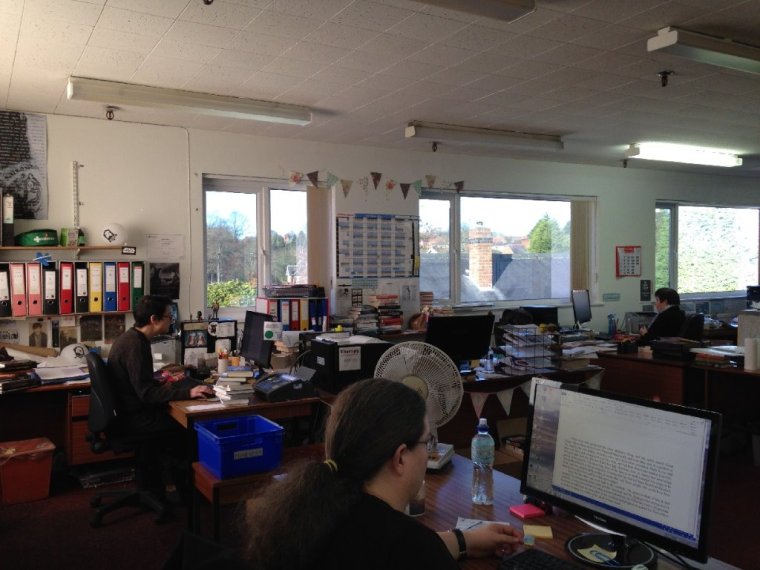
Did you always want to have a career in publishing?
Although I had no doubts about what I wanted to study at university – English literature – I hadn’t a clue what I wanted to do once I finished my studies. I feel extremely fortunate to have landed my job. I’ve been with the company for nearly 14 years, so I feel rather fortunate about that, too!
Have you always been an avid reader?
Always! I vividly remember reading aloud to my dad when I was about six, and him telling me to read the words ‘as though you’re speaking’, and it suddenly clicked. And then there was no stopping me…
Which authors have, or do, inspire you?
I found A Land More Kind Than Home by Wiley Cash thoroughly inspirational in terms of the writing, which was exceptional; it just poured off the page and felt beautifully effortless. In terms of story-telling, and the moral dilemma presented, The Light Between Oceans by M.L. Stedman was utterly compelling.
What is your favourite genre for your own leisure reading?
I do enjoy a well-written, ‘unreliable narrator’/twisty-turn-y tale. I think Paula Daly is fantastic, and I also like Tamar Cohen. I’m afraid I’ve yet to read The Girl on the Train, but I definitely want to do so before seeing the film.
Could you describe the imprints you represent and the word limitations on each?
Our Charnwood and Isis imprints contain mass market popular fiction and non-fiction titles, and our big name authors. The upper limit here is very much dependant on how well we can expect a particular author to sell. Our Ulverscroft imprint tends to house much shorter titles, and the upper limit here is currently around 60-65,000 words. For our Linford Romance imprint, we’d ideally want titles to be somewhere between 30-50,000 words, although we have taken shorter and longer titles than this; the same is true of our Linford Mystery and Linford Western imprints, give or take a few thousand either way.
What do you look for in a new submission?
For most titles, the first consideration is always a practical one – if it’s too long or too short, I won’t be able to consider it. The next consideration is whether or not it will be a good fit for our lists.
What should writers avoid sending you?
If you’re aiming for one of the Linford imprints, then try to make sure it’s a clear fit within the genre – so, a romance rather than a general fiction title, for example. We tend not to do sci-fi or fantasy titles, or self-published non-fiction.
You must see a vast number of submissions, so is there any advice you could give to a writer who is considering submitting a manuscript to you?
Please read and re-read what you’re submitting with as clear an eye as possible. The fewer mistakes, the easier it is for us to see the story you’re trying to tell.
What is the most satisfying aspect of your work?
It’s great when I win an auction for a title I desperately want in our lists, and it’s also very satisfying putting a list together and seeing what I know are some absolutely cracking reads in there. Being surrounded by books all day is also a definite bonus!
Would you consider writing a novella/novel yourself?
I would love to. I note down ideas a lot, although that’s about as far as I’ve ever got.
When not involved in the world of books what do you love doing to relax?
Yoga and singing – I do both with great enthusiasm and questionable results.
My thanks for your continued support for my work (39 titles to date) and for the insight into your world and that of F A Thorpe Publishing.









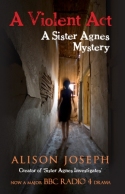
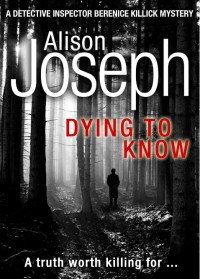
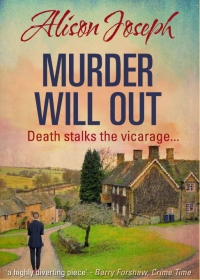

 I was moving from one viewpoint character to two – Hannah and Daniel Kind, the historian who gets to know her in
I was moving from one viewpoint character to two – Hannah and Daniel Kind, the historian who gets to know her in 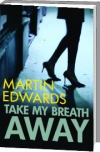 I admit to being driven, in that I feel very conscious that life is short and that there are a lot of things I want to achieve. To my mind, being ambitious is a good thing, as long as one tests oneself against one’s own self-imposed standards, rather than against other people, or the standards set by others. However, although to some extent I’m self-disciplined, I sometimes wish I were better organised. I do tend to set myself very demanding targets that I fail to meet with monotonous regularity. Perhaps – in a not very coherent way –that’s the method that works best for me, and even if sometimes I feel I could have achieved more, perhaps this helps to drive me on to do better in future.
I admit to being driven, in that I feel very conscious that life is short and that there are a lot of things I want to achieve. To my mind, being ambitious is a good thing, as long as one tests oneself against one’s own self-imposed standards, rather than against other people, or the standards set by others. However, although to some extent I’m self-disciplined, I sometimes wish I were better organised. I do tend to set myself very demanding targets that I fail to meet with monotonous regularity. Perhaps – in a not very coherent way –that’s the method that works best for me, and even if sometimes I feel I could have achieved more, perhaps this helps to drive me on to do better in future. Intriguing question, and I’m not quite sure about the answer. When I was fighting legal cases in the employment tribunal, I always wanted to win, but on the whole I felt that the right result was usually achieved in most cases. With fiction, I like to see some form of justice done at the end, but this doesn’t always mean the conviction of those who are technically guilty. I think it’s good if a novel reaches a conclusion that affords “satisfaction”, but the forms that satisfaction, and indeed justice, can take are many and various. Christie understood that – consider the finale to Murder on the Orient Express.
Intriguing question, and I’m not quite sure about the answer. When I was fighting legal cases in the employment tribunal, I always wanted to win, but on the whole I felt that the right result was usually achieved in most cases. With fiction, I like to see some form of justice done at the end, but this doesn’t always mean the conviction of those who are technically guilty. I think it’s good if a novel reaches a conclusion that affords “satisfaction”, but the forms that satisfaction, and indeed justice, can take are many and various. Christie understood that – consider the finale to Murder on the Orient Express.